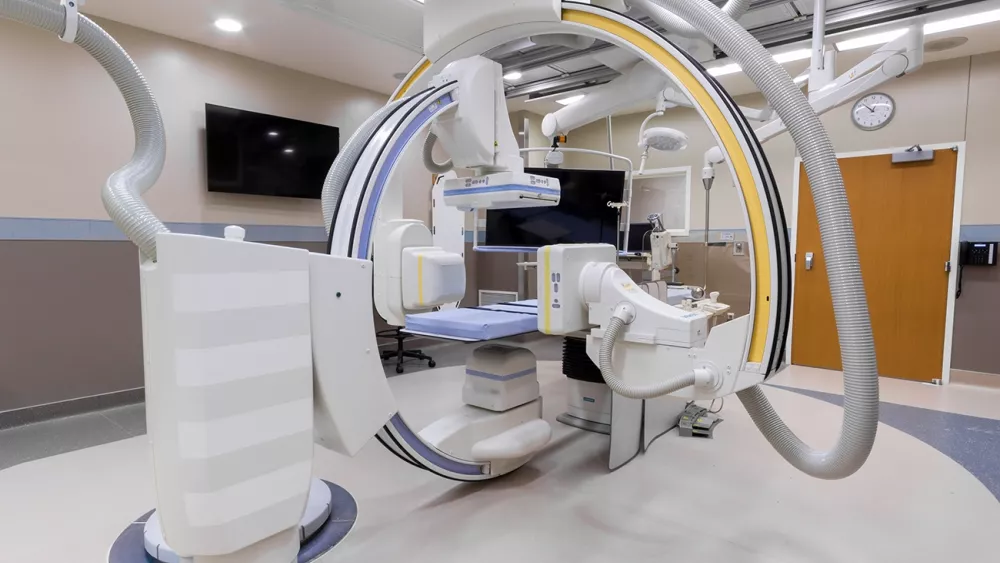




Interventional Radiology Debuts Larger, Modernized Space
Published: March 2, 2015

OMAHA – Interventional radiology, which offers patients treatment options that are minimally invasive resulting in shorter recovery times, will now be done in a new, more modern space at Methodist Hospital.
The new area made its debut last week.
Interventional radiology remains in its former location, but a better use of space and some expansion in the area has resulted in an improved experience for the care team and patients.
“Our team is very excited about this new space,” said Jennifer Brase, service executive for diagnostic imaging services at Methodist Hospital. “The larger and modernized area is a result of a better use of what was once our existing space. Our new procedure area, while much bigger, also will enhance our patient monitoring abilities and incorporates patient safety features similar to an operating room. Our team does six to seven procedures a day and the completion of this project will allow us to care for our patients in a more efficient manner, while still providing the outstanding care they have come to expect at Methodist.”
Among the new features is a bi-plane interventional radiology machine, larger patient monitoring unit, air flow and negative pressure systems.
“Many of the features we have mimic those of our new operating rooms which are part of the surgery renovation and expansion project on our campus,” Brase said. “These enhancements certainly allow our team to work more efficiently and safely.”
Using advanced imaging technology, interventional radiologists perform a wide range of procedures to diagnose and treat many conditions from cancer to vascular disease. Interventional Radiologists are physicians with additional specialty training in radiology.
The Interventional Radiology Department at Methodist Hospital is a regional referral center specializing in imaging-guided procedures. Interventional radiology procedures are minimally invasive and can often be done in place of surgery, and in some cases, provide treatment for disorders for which there are no surgical alternatives.
Interventional radiology procedures can include biopsies, radio-frequency ablations, angioplasty and vascular stenting, tumor ablation and Y-90 selective internal radiation therapy.
Peripheral vascular disease, plantar fasciitis, tennis elbow, jumper’s knee and a variety of cancers are among the diseases and conditions which can be treated through interventional radiology.
Methodist Hospital’s vascular surgeons will also utilize the new space, performing such procedures as angiography and peripheral vascular disease repair.

